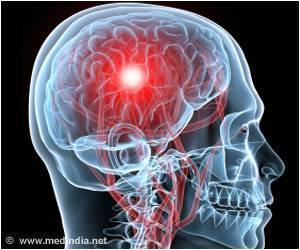The first clinical trial has shown that the approach to examine integrated low vision and mental health treatment can reduce the incidence of depression by half among people with low vision due to age-related macular degeneration (AMD).

Low vision is a visual impairment that interferes with a person's ability to perform everyday tasks and cannot be corrected with glasses, contact lenses, medicine or surgery. A common cause of low vision is AMD, a condition that causes irreversible vision loss in a majority of cases. An estimated 11 million Americans currently have AMD, and the prevalence is expected to grow to 21.6 million persons by 2050. Up to 30 percent of those living with AMD develop depression, which is associated with higher levels of disability, medical costs and mortality. Despite this, many depressed persons receive no treatment because they perceive depression as a personal failure or an expected part of aging, they are uncertain how to access specialty care, or their physicians lack the resources to effectively diagnose and treat depression.
Currently, the most common treatment for low vision due to AMD is low vision rehabilitation. This treatment involves the assessment of a patient's functional vision, prescription of assistive devices and instruction in the use of these devices, but it does not include any form of psychological support for the patient. To investigate the value of integrating psychological therapy with low vision rehabilitation, a group of researchers from the Sidney Kimmel Medical College at Thomas Jefferson University, Dartmouth Medical School and Johns Hopkins School of Medicine studied 188 patients, averaging 84 years of age, with AMD in both eyes and early signs of depression.
Named the Low VIsion Depression Prevention TriAL (VITAL), the 2013 study first provided all participants each with two sessions of outpatient low vision optometric rehabilitation in clinics. Then the patients were randomly assigned to two types of psychological therapy: either six one-hour sessions of in-home behavior activation over eight weeks or six one-hour sessions of in-home supportive therapy over eight weeks, which served as a control. Behavior activation promotes self-sufficiency and social connections to improve mood and counter withdrawal. Delivering behavior activation in the context of low vision occupational therapy involves environmental modifications, such as marking specific temperatures on the thermostat with high-contrast markers, and aims to improve functional vision as well as help patients achieve valued personal and functional goals. Nondirective supportive therapy facilitates personal expression about illness, disability and vision loss.
After four months, the researchers assessed eight variables, including depression, vision status, vision-related quality of life, physical health status and device use, and found that the incidence of depressive disorders was half in the behavior activation group than of that in the supportive therapy group (12.6 percent versus 23.7 percent, respectively). The rate of depression found in the supportive therapy group was also similar to that reported in the absence of any treatment.
The risk reduction was strongest in participants with worse vision than in participants with better vision (20 percent versus 3.4 percent, respectively). In addition, behavior activation was associated with improved near functional vision, but the difference between the two groups was not statistically different. The researchers also found that participants who self-rated their own health lower were associated with a higher incidence of depression regardless of the treatment used, indicating that those with worse health perceptions require more intensive intervention.
The American Academy of Ophthalmology encourages ophthalmologists to provide information about rehabilitation resources to patients with vision loss and, when available, referral to multidisciplinary rehabilitation and group support that focuses on social activation, problem-solving and self-management skills.
 MEDINDIA
MEDINDIA




 Email
Email










